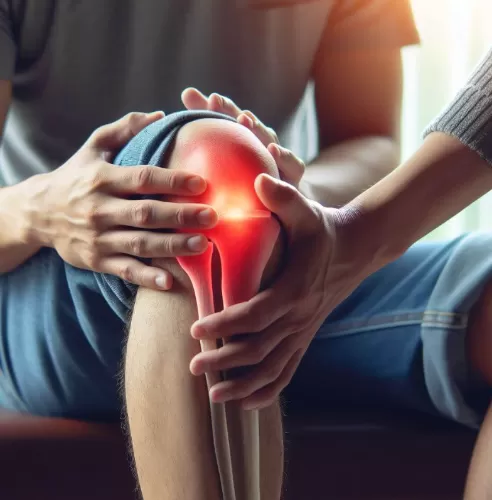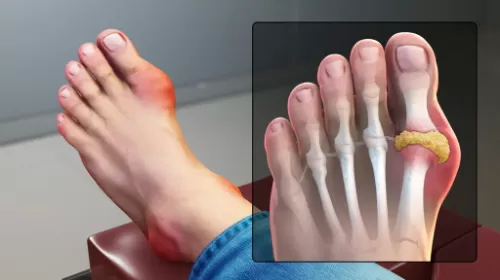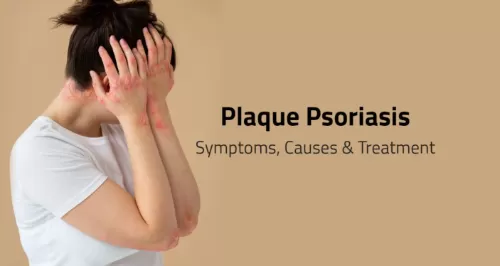Understanding Ulcerative Colitis: Causes, Symptoms, and Management
Ulcerative Colitis (UC) is a chronic inflammatory bowel disease (IBD) that affects the lining of the large intestine (colon) and rectum. It causes inflammation and ulcers (sores) in the digestive tract, leading to a variety of symptoms that can significantly impact a person's quality of life. In this article, we will explore the causes of UC, the common symptoms, and how to manage and treat flare-ups.
Related searches

UC Conditions
Ulcerative colitis is one of the main types of inflammatory bowel disease (IBD), along with Crohn’s disease. UC primarily affects the colon and rectum, causing long-lasting inflammation. It can present in different forms based on which part of the colon is affected:
Proctitis: Inflammation limited to the rectum.
Left-sided colitis: Affects the rectum and the left side of the colon.
Pancolitis: Involves the entire colon.
UC typically alternates between periods of remission and flare-ups, where symptoms become more severe.
UC Causes
While the exact cause of ulcerative colitis remains unknown, several factors are thought to contribute to its development:
Immune System Response: UC may result from an abnormal immune response where the immune system mistakenly attacks healthy tissue in the colon.
Genetics: There may be a hereditary component, as UC tends to run in families.
Environmental Factors: Certain environmental triggers such as diet, stress, or infections may exacerbate symptoms or contribute to the onset of UC.
Microbiome Imbalance: Imbalances in gut bacteria could play a role in the inflammation seen in UC.
Identifying potential triggers can be crucial for managing the condition and preventing flare-ups.
Treating UC Flare Up
Flare-ups are periods when symptoms worsen. These episodes can cause significant discomfort and disruption to daily life. Common symptoms during a flare-up include abdominal pain, diarrhea, rectal bleeding, and urgency to have a bowel movement. Treatment options for UC flare-ups typically include:
Medications: Anti-inflammatory drugs (e.g., aminosalicylates or corticosteroids), immunosuppressants, or biologics are commonly used to reduce inflammation and manage symptoms.
Diet Adjustments: During flare-ups, doctors may recommend dietary changes such as avoiding high-fiber foods, which can aggravate symptoms.
Hydration: Diarrhea can lead to dehydration, so it's important to stay hydrated during a flare-up.
Stress Management: Stress can exacerbate UC symptoms, so finding ways to manage stress through relaxation techniques, exercise, or counseling can be beneficial.
UC Flare Up Treatment Options
There are several approaches to treating UC flare-ups depending on the severity of the condition:
Mild to Moderate UC: Aminosalicylates, such as mesalamine, are commonly used to treat mild to moderate UC by reducing inflammation in the colon.
Moderate to Severe UC: Corticosteroids may be prescribed for short-term use during severe flare-ups to rapidly reduce inflammation. Biologic therapies, such as anti-TNF agents (e.g., infliximab), are also used for more severe cases.
Surgery: In cases where medication is not effective, surgery to remove part or all of the colon may be necessary.
Consulting a healthcare professional to determine the best treatment plan during flare-ups is essential.
Colon UC
UC specifically targets the colon (large intestine), which becomes inflamed due to the disease. Inflammation can vary in severity and extent:
Mild Inflammation: Affects small areas of the colon and may cause mild symptoms.
Severe Inflammation: Can affect the entire colon (pancolitis), leading to more intense symptoms such as frequent bloody stools, abdominal pain, and weight loss.
Regular colonoscopy screenings are recommended for people with UC, as long-term inflammation can increase the risk of colon cancer.
How To Manage UC Symptoms
Managing UC on a day-to-day basis involves a combination of lifestyle adjustments and medical treatments. Here are some strategies to manage symptoms and maintain remission:
Medication Adherence: Staying on prescribed medication, even during remission, helps to prevent flare-ups.
Dietary Modifications: A low-residue or low-fiber diet during flare-ups may reduce symptoms. Some people find that specific foods trigger their symptoms, so keeping a food diary can be helpful.
Regular Monitoring: Regular check-ups and colonoscopies help monitor disease progression and detect any complications early.
Exercise and Stress Management: Gentle physical activity, yoga, or meditation can help reduce stress, which may contribute to symptom flare-ups.
Support Networks: Joining support groups or counseling sessions can provide emotional support and practical advice for living with UC.
In conclusion, ulcerative colitis is a complex condition that requires a comprehensive approach to management. By understanding the triggers, recognizing flare-up symptoms early, and working with healthcare professionals, individuals with UC can manage the disease effectively and lead fulfilling lives. If you suspect you have UC or are experiencing symptoms, it’s important to consult with a medical professional to receive the appropriate diagnosis and treatment plan.

Best Knee Pain Relief Near Me

Understanding Alzheimer's: Navigating the Landscape of Memory Loss

Addressing Medical Problems with Online Healthcare Education

Understanding Plaque Psoriasis: Causes and Insights

Achieve Your Fitness Goals with Expert Training and Coaching

5 Proven Weight Loss Hacks You Need to Try in 2025







